How can we make sure everyone can be who they are at Makom? How can we act in a way that supports people being who they are? At Makom Community we value creating a space where we show love and feel loved. One way we do that is by creating a brit, a two–way promise, that outlines our expectations for how we treat each other at Makom Community.
Our learners examined the ways we like to be loved and welcomed, how we treat each other, and how to be a safe, loving, and happy learning environment where everyone can engage as their full self.
The following are texts or general ideas which our learners drew inspiration from:
Garinim (kindergartners):
- Pirkei Avot 2:4 Hillel said: “Do not separate yourself from the community. Do not judge your fellow until you have reached their place. Do not say something that cannot be understood [trusting] that in the end it will be understood”.
- Deuteronomy 22:8 “When you build a new house, build a fence around the edge of the roof so that if someone falls off it’s not your fault….”
- Pirkei Avot 3:11 “Someone who knows a lot of Torah and good deeds but chooses to embarrass a friend anyway is not helping to create olam haba – a better future.”
- Rabbi Hillel
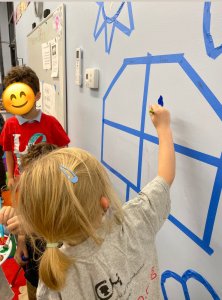
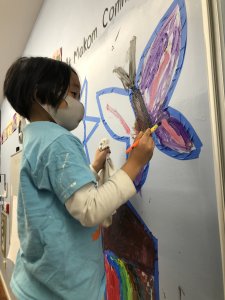
Shorashim (1st and 2nd grades):
- Leviticus 19:18 “Love your neighbor as yourself” gave us lots to think about how we treat others the way you want to be treated.
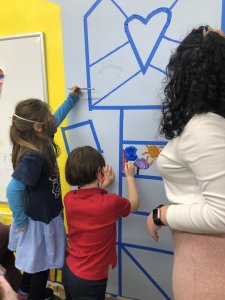
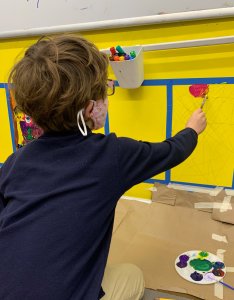
Nitzanim (3rd, 4th, and 5th graders):
- Ecclesiastes said “Two are better off than one… For should they fall, one can raise the other.”
- Pirkei Avot 1:14 and 2:10: “If I am not for myself, who is for me? But if I am for my own self [only], what am I? And if not now, when?” (Pirkei Avot 1:14).
- Rabbi Eliezer said: “Let the honor of your friend be as dear to you as your own” (Pirkei Avot 2:10).
- Leviticus 19:33-34: God advises us how to welcome the stranger as one of our own, reminding us that B’nei Yisrael (the Jewish community) were once strangers in the land of Egypt.
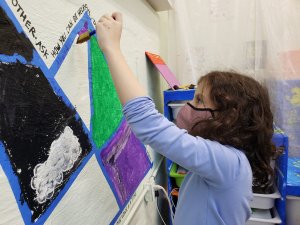
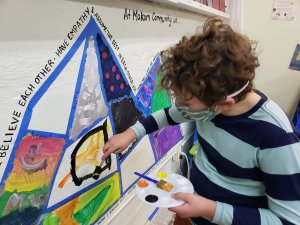
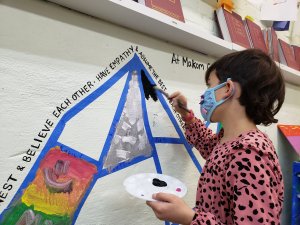
All of our learners were very eager to have their ideas heard and every kiddo listened respectfully as kids shared. We wrote down every single idea and discussed them. We wonder whether we were passionate about a specific point? Were there any points that could be combined with another? Kiddos really took their time and we were so impressed with the list they came up with.
Garinim:
- Help each other get up if we fall down and ask for help if we need it
- Are non-judgmental
- Are inclusive
- Are honest and believe each other
- Are loving and kind and take care of each other even when it’s hard
- Find safe ways to feel our feelings
- Take responsibility for our own needs and choices
- Hand our materials carefully to each other
- Pay attention to each other’s feelings and offer help and compassion
- Ask permission before going in someone else’s space
- Make mistakes and respond kindly
- Try to understand each other and communicate clearly
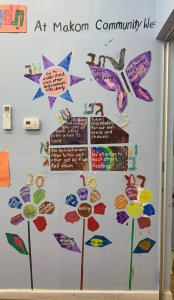
Shorashim:
- Listen when others are talking
- Share gratitude
- Try to include everyone
- Share how we feel in a calm way
- Use kind words
- Respect each others boundaries
- Use kind words
- Treat others the way we want to be treated
- Make safe choices with our body
- Respect our physical space
- Check in with others to see if they’re ok
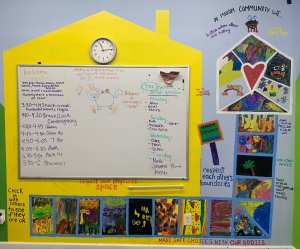
Nitzanim:
- Have empathy and assume the best in each other
- Ask a person how you can help them when they need it
- Treat each other and our space with kindness and respect
- Keep our bodies to ourselves
- Use the Pinat Shalom or a fidget (our tools) if we need to calm down
- Ask “how can I make this better than I found it?”
- Listen to each other, one voice at a time
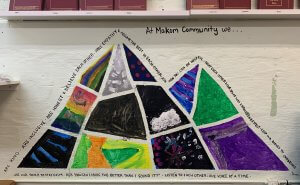
We love seeing kiddos’ faces examining our classroom brit week after week and pointing out the bits that they’re proud of and can help them work through moments of conflict. Kiddos know that they are welcome to bring up new ideas or wonder about original ideas since our brit is a working document and might shift as our needs change.
